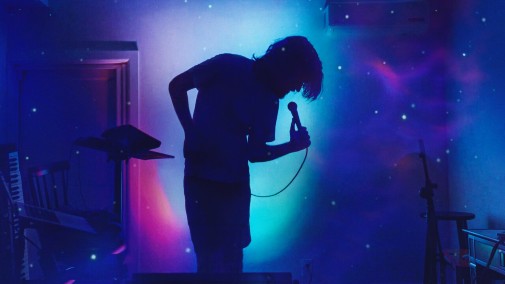
In 2016, Bo Burnham announced he was quitting live comedy. The artist, whose career started on Youtube, attributed the decision to a series of panic attacks he'd had while on stage during the tour of his latest show. When transforming said show, Make Happy, into a Netflix special, Burnham built the ending to resonate with a sense of finality that went beyond the end of the stand-up act. The smirking meta-performance reaches its zenith with a parody of a Kanye West rant, interrupted midway through by unexpected sincerity, a confession of the comedian's anxieties. After saying he hopes the audience is happy, he leaves, and the camera follows. Not backstage, but into Burnham's home, a nondescript white room with a lonely keyboard. The special ends with the instrument left behind after one last song, the funny man exiting through the door on the corner. He goes out of the shot, out of the show, out of his life as a comedian.
Five years later, after redirecting his attention to cinema both as a writer, director, and actor, Bo Burnham is back in that room. He's alone, performing once more. Like most of us, for the better part of 2020, he's Inside…
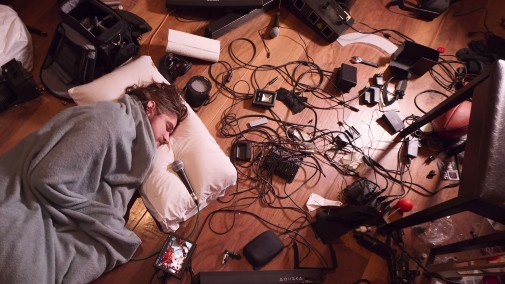
In the Spring of 2019, I felt ready to end it all. The walls of hopelessness had crashed over me, and I didn't feel strong enough to dig my way out of the rubble. Drowning in my thoughts, I just wanted to sleep, to disconnect. I won’t go into further detail regarding what I did that night, but it wasn’t a proud moment nor something I want others to emulate or even contemplate. That being said, it’s an experience I’ve been thinking a lot about lately, ever since I saw Bo Burnham’s latest. Inside is as much a comedy special as a pop concept album. In one of its shorter songs/soliloquies, the multifaceted artist articulated what I was feeling that night with startling clarity. The lyrics are:
I feel okay when I'm asleep. Like, when I'm asleep, I feel alright. But it's basically... From the moment I wake up, I, uh... I just get this
Feeling in my body, way down deep inside me
I try not to fight it (Describe it!) Alright
A few things start to happen. My vision starts to flatten
My heart, it gets to tappin', and I think I'm gonna die
Yeah, so, um, yeah. Not, not doing great.
Bo Burnham is no genius for talking about the weird relationship depressed people have with the oft-elusive mercy of sleep. I've read several similar things before, and heard them too. Nonetheless, it was while watching Inside that the pieces fell into place inside my mind. Suddenly, I could understand that irrational spiral of insomniac self-annihilation that happened back in those erstwhile pre-pandemic days. Suddenly, I could come to grips with things I've been trying to ignore, even as I seek help for my depression. Maybe it's just a "me thing," but I often need to see my own experience reflected somewhere else before I can face the reality of what's happening. Sometimes even writing - character dialogues or film reviews/essays - helps. It often happens with pieces of media, but seeing other people going through the same can also provoke that little epiphanic spark.
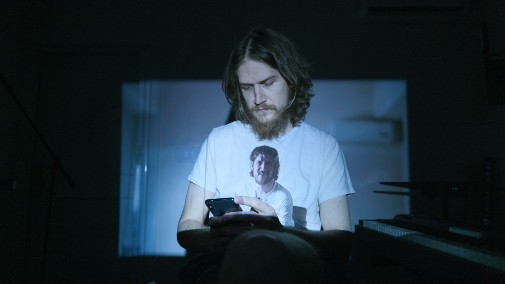
For example, the first time I opened up about suffering from depressive symptoms occurred when I tried to comfort a loved one in need. That someone was in a state of crisis and had already been diagnosed with chronic depression years before. As they went on about being alone and how nobody around understood, I finally confessed that I indeed understood, sort of. I was in the pits of depression too. That was my initial step in an ongoing journey to better mental health, and it wasn't easy or painless. Recognizing oneself can sometimes come with a prickly sting. Inside worked similarly on me. Bo Burnham isn't healing the world with comedy while being paid and being the center of attention. He's not healing me with comedy either.
If anything, through his latest Netflix gig, Bo has unwittingly made me aware of both how much I healed since that 2019 springtime night and how far I still have to go. It's not so much healing a wound as pouring salt on the open flesh, so I don't forget about its existence and accidentally let the thing infect through sheer negligence. All that, and it's full of bops and gallows humor. Of course, the worth of Inside doesn't start or end in its pseudo-therapeutic value for this weirdo. Whether it's cinema or TV, a web video, a concert - whatever - it has the potential to become one of the definitive artistic records of life during the worldwide pandemic and consequential shutdown. Shot within a single room over several months of quarantine, Inside is also a lie that tells the truth.
There's a clear fakeness to Netflix's multimedia plunge into the abyss of sing-song honesty. Apparently, unlike what a viewer might suppose, Bo Burnham wasn't living alone all during the pandemic. He quarantined with girlfriend Lorene Scafaria, to whom Inside is dedicated. Does that make it dishonest? Does it even matter? As an artist and public figure, Burnham is a child of the internet, and his work has long reflected the virtual-induced derealization of the Digital Age. While the live performance setting of his early specials managed to explore this ideation from a distance, Inside, by virtue of its form, is more direct. He doesn't even hide the labor of constructing the special's precise musical rhythms, showy setpieces, and varied visuals. The coda makes the behind-the-scenes footage in video clip fodder. Like Bo puts it near the beginning, Inside is a bit all over the place, jumbled and jagged, devoid of smooth transitions or seamless illusion.
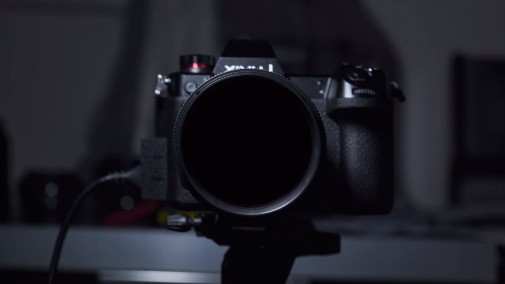
The entire piece is structured around an ever-present sense of disruption, staged and finely tuned, both a trap and salvation. It's a contradiction I can relate to. In this present paradigm, the screen (Bo's, mine, yours) is a window opened to a landscape vaster than anything nature could create. It's colorful and dense, so full of information that it forms a black hole, pulling us into its depths where gravity is so strong that pure light turns to shadow. It's the void that looks back at us, winking. The internet, which earns so much of Bo's despair, his anger, has made it so that there's a paradoxical nature to recent self-isolation. We're trapped inside, yet stretched across an infinite void.
Are these insights without value if they are not sincere, or if their impact comes not from unfiltered honesty but the audience's artificially-induced auto reflection? This miracle of millennial comedy puts all these questions forward. Once more, I cannot offer any answer. I certainly projected a lot onto Inside, almost as much as Bo projects on the walls of his limited set. And, quite frankly, I'm not sure the artist himself would be too happy with how I'm dancing at the edge of the para-social precipice when watching and processing this new special. But then, who cares what he thinks? Bo Burnham may fashion himself a Jesus-wannabe for humorous snark, but he's not a god sent savior, nor is he the ultimate owner of Inside. That's the audience.
Still, going back to the Jesus-y aesthetic, there's both a preachiness inherent to the exercise, as well as a mockery of that same impulse to preach from a place of privilege. The use of religious imagery is a nod to a messianic role that the idolized artist ends up having. It's also a jest draining said iconography of its imaginary power. Thinking about it, I may be doing Inside a disservice by writing about it in connection to my mental health issues because, while this one-man musical show feels like it invites the viewer into such places, it also repudiates that instinct. It often does it with genuinely funny skits. Oh, this push-and-pull never stops! Some might even say Bo Burnham wants to have his cake and eat it too - a little bit of everything, all of the time - thus producing a work that's constantly acknowledging its messiness while still indulging in mess, stealthily criticizing the viewership who might end up loving it most.
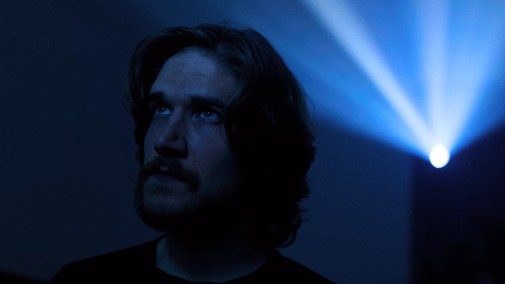
I'm not a proponent of the idea that a work of art's flaws are made void by self-awareness. An admission of error isn't, in my mind, a vaccination against critique. On that same note, I understand those who are put off by Burnham's style of expression, the referential nature of his work, and its whiffs of pretentious navel-gazing. However, even as I see those avenues of thought that might lead me to dislike Inside, I can't help but love it, finding all its broken sincerity and shattered existentialism to be moving beyond words. Going by that logic, though, you're free to call this write-up insanely long-winded, overlong, too personal, and the antithesis of succinctness. Me pointing it out doesn't invalidate the critique. Still, I hope some of you might find this mess mildly fascinating or, in the best-case scenario, an nth as valuable as Inside was to me. At this point, it's the best I can do and all I can hope for. Thank you for reading.
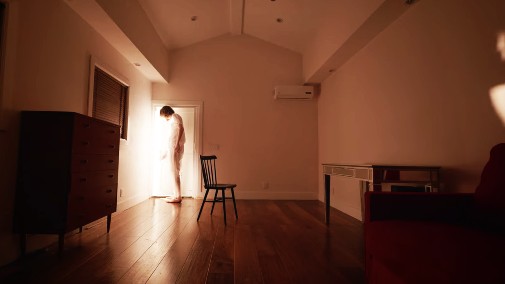
Bo Burnham: Inside is available on Netflix.